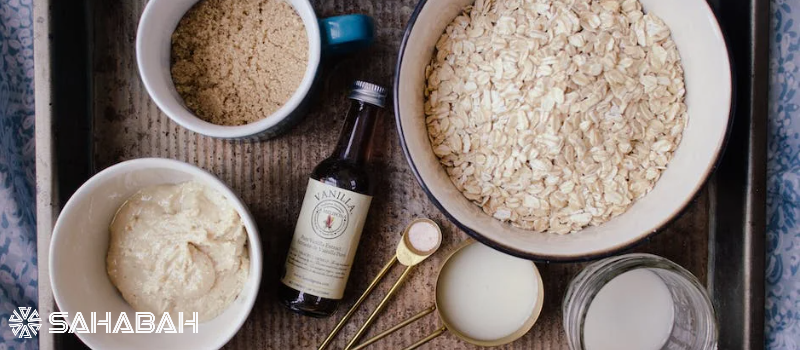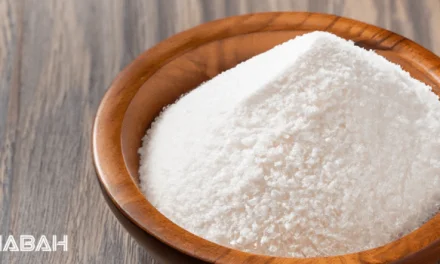Vanillin is an integral component of vanilla flavorings used across food products, perfumes, and other household items. But its origins and manufacturing process raise questions around whether vanillin meets Islamic halal dietary standards.
In this in-depth guide, we’ll analyze the various production methods, undisclosed additives, and potential alcohol exposure found in modern vanillin. Read on for perspectives from Islamic scholars and alternatives to ensure consuming only permitted halal ingredients.
Defining Halal Consumption in Islam
Halal refers to any food, drink, or product that is permissible for use and consumption under Islamic law. Haram ingredients, on the other hand, are strictly prohibited.
Allah has granted humanity an abundance of lawful, wholesome ingredients to enjoy. For devout Muslims seeking to submit to His will, verifying the halal status of everything they intake is essential.
Analysis of production methods and components is required as even a small amount of forbidden substances can render something haram. This includes pork, alcohol, and any meat slaughtered in the name of other than Allah.
Additionally, some chemical additives and processing aids fall into a gray area depending on their origin and use. This includes glycerin, emulsifiers, sweeteners, flavor enhancers and more found in packaged goods.
When it comes to vanillin, the core questions become:
- Is it derived from a prohibited substance like alcohol or pork byproducts?
- Was it manufactured using genetically modified bacteria cultures or gene-editing technologies?
- Can the vanillin source and purification methods be decisively confirmed?
If there is doubt surrounding any of these issues, avoiding such vanillin is advised until transparent information is provided by manufacturers. Next we’ll break down the common types found in products today.
An Overview of Vanillin Sources
Vanillin appears as an ingredient providing vanilla flavor, usually in small amounts. First isolated from vanilla bean pods in the mid 1800s, most vanillin today is synthetically produced.
Natural vanillin extracted directly from vanilla beans is permissible, though more expensive. However alternate manufacturing processes raise questions around their halal status:
Lignin Extraction
- Byproduct of paper industry from wood pulp and waste material
- Isolated through various chemical decomposition methods
- Requires extensive purification which may use alcohol
- Halal certifiers debate whether safe to consume
Guaiacol Process
- Converts compounds like guaiacol and glyoxylic acid to vanillin
- Uses potential alcohol catalysts and reactants
- Considered haram by most authorities
Bacterial Bioconversion
Microbes metabolize eugenol, lignin, or ferulic acid Enzymatic reactions seen as more natural pathway
- May involve genetically engineered organisms
- Halal status depends on oversight agencies
Reputable halal certifying bodies would require disclosing all aspects of relevant production chains. But most vanillin makers combine multiple sources without transparency. This necessitates analyzing common usage in products Muslims consume daily.
Widespread Use of Vanillin in Foods and Household Items
Artificial vanillin now makes up the majority of vanilla flavor used commercially. It can be found in:
Baked Goods and Desserts
- Cakes, cookies, pastries to enhance sweet flavor
- Ice cream, chocolate, candy, cocoa mixes, etc
- Usually not detected on ingredients list as part of “natural flavor”
Dairy and Drinks
- Sweetening yogurts, milkshakes, creamers
- Present in powdered drink mixes and kids’ juices
Packaged Snacks and Cereals
- Providing cheap vanilla flavor to sweet and savory snacks
- Granola bars, cookies, crackers, popcorn, chips, pretzels
- Breakfast cereals aimed at children
Personal and Household Care
- Perfumes, scented lotions, shower gels, deodorants
- Air fresheners and cleaning sprays, scented tissues
- Little transparency around purity or grade
Observant Muslims check ingredients lists closely to avoid ingesting anything deemed unlawful according to teachings of the Prophet Mohammed (PBUH). This requires knowing hidden additives like vanillin may be prevalent without disclosure.
Perspectives on Vanillin Halal Status Among Islamic Experts
There is still disagreement within the international halal industry whether vanillin falls under permitted or prohibited categorization.
Some major halal certification boards have approved certain vanillin when derived from plant matter through allowable processes absent of alcohol. Especially as analysis technology and bioengineering methods progress, this stance sees chemically produced vanillin as similar to extracting any other ingredient from natural raw materials.
However, other oversight organizations and religious bodies take a strict stance that only vanilla from an actual orchid pod can be considered definitively halal.
They argue:
- Modern vanillin production involves too many uncertainties around feedstock and catalysts used which may employ alcohol at some stage
- Verifying entire supply chain back to raw ingredients is near impossible currently
- Alternatives exist like pure vanilla extract or beans
This split stems from lack of transparency by flavor and fragrance manufacturers regarding what being “natural-identical” fully entails.
Without clear sign-off from all major certification agencies, observant Muslims are left having to exercise best judgement around vanillin consumption or risk potential sin.
Seeking Halal-Compliant Alternatives to Vanillin
Allah repeatedly emphasizes the importance of consuming only pure, lawful sustenance free of contamination in the Holy Quran.
And though modern vanillin avoids some previous techniques that employed alcohol or animal bones to provide flavor, too many questions around processing and trace ingredients remain.
The most cautious path forward for devout Muslims includes:
- Seeking out certified halal products avoiding synthetic additives
- Contacting manufacturers to ask about vanillin and flavoring sources, pressuring increased transparency
- Opting for verified vanilla extract or beans in home cooking and baking
- Supporting brands focusing on ethical sourcing and natural ingredients
Market demand for stricter standards around halal components will encourage more explicit production labeling from food giants.
Additionally, improved technology and microbiology techniques can develop innovative ways to produce vanillin that aligns with religious needs. Fermenting vanilla glycosides through enzymes shows promise as does using CRISPR to edit yeast and bacterium to increase natural vanilla yields sustainably.
In a world filled with perfectly designed fruits, vegetables, herbs and spices, there is little need to rely on synthesized alternatives to what Allah provides. Prioritizing piety and close adherence to halal requirements will allow the faithful to walk the righteous path, in sha Allah.
Conclusion: Vanillin Halal Or Haram
Modern vanillin production introduces too many uncertainties around alcohol exposure and transparency to be definitively classified as halal by all Islamic authorities.
While natural vanilla bean extract avoids these concerns, cost and supply challenges mean synthetic vanillin continues widespread use across snacks, desserts and scented products Muslims consume daily.
Carefully checking labels, contacting companies for clarity, and making informed choices allows faithful Muslims to stand against the spread of excess hidden additives and demand higher purity standards aligned with their values. Seeking out halal certification and emphasizing only verified natural ingredients casts a vote for increased transparency around sourcing and eliminates difficult gray areas that may conceal haram components against the teachings of Allah.
Frequently Asked Questions – Is Vanillin Halal
Can natural vanillin be considered halal?
Natural vanillin can be considered halal if it is sourced without the use of alcohol extraction methods, ensuring that it aligns with the requirements of halal food and beverage production according to Islamic dietary laws.
What is vanillin and how is it related to the concept of halal?
Vanillin is a flavor compound commonly used as a synthetic or artificial alternative to natural vanilla. The concept of halal comes into play regarding vanillin because of its potential association with alcohol, which is a significant consideration in Islamic dietary laws. Therefore, the halal status of vanillin depends on its production process and any potential alcohol content.
Is vanillin halal or haram according to Islamic law?
The halal status of vanillin would depend on the source and production process. If it is manufactured without the use of alcohol, ethyl, or any haram substances, it can be considered halal. However, vanillin derived from alcohol or produced using haram methods would be considered haram for consumption in Islamic dietary laws.
How is vanillin typically used in food and beverage products?
Vanillin is commonly used as a flavoring agent in a wide range of food and beverage products, including baked goods, desserts, confections, and certain beverages. It imparts a characteristic vanilla flavor and aroma to these products, enhancing their sensory appeal.
Can vanillin be derived from natural sources like the vanilla plant?
Yes, vanillin can be extracted from the vanilla plant (Vanilla planifolia) through methods such as macerating and percolating vanilla beans. This natural vanillin extraction process can yield a pure form of vanillin without the presence of ethyl alcohol or other haram elements, making it potentially halal.
What is the difference between synthetic vanillin and vanillin extract made from natural vanilla beans?
Synthetic vanillin is chemically produced, often using petrochemicals or lignin as starting materials. On the other hand, vanillin extract made from natural vanilla beans involves the extraction of the compound from the beans through methods like maceration or percolation. While synthetic vanillin can raise concerns about its halal status due to its production process, vanillin extracted from natural vanilla beans can be considered halal if produced without alcohol.
Can vanillin be halal if it contains ethyl or ethyl alcohol?
The presence of ethyl or ethyl alcohol in vanillin can potentially contribute to its haram status. In Islamic dietary laws, products containing alcohol or its derivatives are typically considered haram for consumption. Therefore, vanillin containing ethyl or ethyl alcohol would not be considered halal.
Are there specific brands of pure vanilla beans or vanilla products that are considered halal?
Yes, certain brands or sources of pure vanilla beans and vanilla products are verified as halal, indicating that they are produced without the use of alcohol or any haram ingredients. It is essential to check for halal certification or assurance from reputable halal certification organizations when selecting vanilla products for consumption in accordance with Islamic dietary guidelines.
Is vanillin powder typically a halal product?
The halal status of vanillin powder depends on its production process and ingredients. If the vanillin powder is derived from natural sources without the use of alcohol or haram elements during its production, it can be considered halal. However, vanillin powder produced using haram methods or containing alcohol would be considered haram for consumption in Islamic dietary laws.
What are the key considerations for determining whether a vanillin product is halal?
When evaluating the halal status of a vanillin product, key considerations include its production process, source of vanillin (natural or synthetic), potential alcohol content, and adherence to Islamic dietary guidelines. It is crucial to ascertain that the vanillin product is manufactured using halal-compliant methods and does not contain any haram substances, particularly alcohol or its derivatives.
Can someone consume products containing vanillin without concern for their halal status?
As a consumer, it is important to be mindful of the halal status of products containing vanillin, especially if there are concerns about alcohol content or the production process. Consumers following Islamic dietary guidelines should seek clarification on the halal status of vanillin-containing products and prioritize selecting those that are certified as halal to align with their religious dietary requirements.





